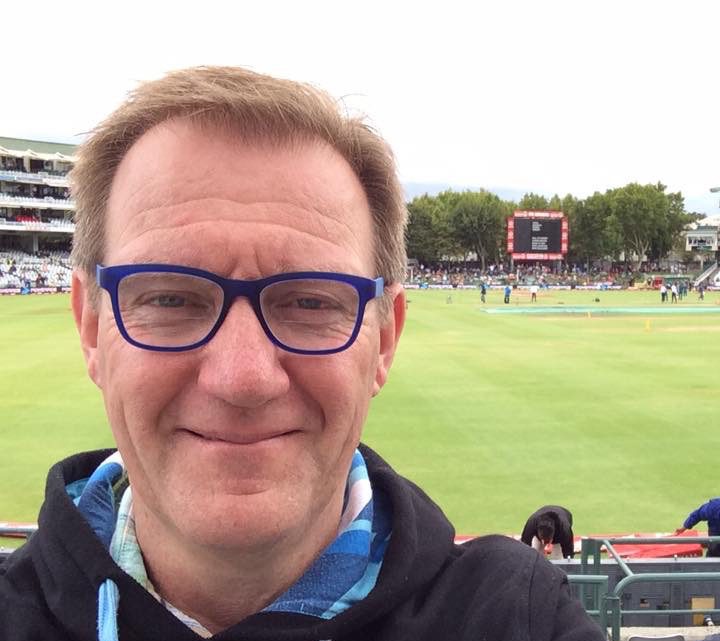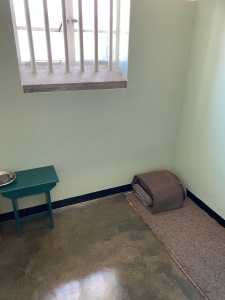(This item first appeared in the Argus on 25th January 2023)
In the early 1980s there were increasing calls for sanctions against apartheid South Africa. These were resisted by the newly-elected US President, Ronald Reagan, and by Margaret Thatcher (who allegedly had described Nelson Mandela as a ‘grubby little terrorist’).
As the local organiser of the Anti-Apartheid Movement, I was asked to do a BBC radio debate on sanctions against South Africa with the Member of Parliament for Brighton Kemptown, Andrew Bowden. Having not been in the country long, I had never met a Conservative politician and, in my naivety, I had assumed he would be a rabid right-winger.

Sir Andrew Bowden (Photo: The Argus)
When we met at the local studio, then in Marlborough Place, Mr Bowden was charm personified. He sympathised with me for having had to leave South Africa to avoid conscription, and at such a young age. He said that we had to do whatever we could to end apartheid. The only thing we disagreed on, he said, was the means for doing so. He said that sanctions would mostly harm black people and that he was in favour of “jaw-jaw rather than war-war.”
I disagreed with his view. The African National Congress and eminent figures like Desmond Tutu (later to become the Archbishop of Cape Town) were calling for sanctions.
Just before we went on air, Mr Bowden said to the presenter that he had recently read in the House of Commons’ Library that this particular programme had audience figures of around 200,000 people. Having been wrong-footed by his charm, I now visualised a mass gathering of 200,000.
When later I listened to a replay of the debate, Mr Bowden came across as calm, measured and sincere as he spoke quite intimately to the presenter, whereas I came across as hectoring, dogmatic and speechifying, trying to address an audience of 200,000. It was one of my most important lessons in working with the media and for that I am grateful to Andrew Bowden.
I got to know Andrew many years later. He is, genuinely, a charming man and was a very able politician who won over many working-class Labour voters in East Brighton, particularly when he was opposed by arrogant, middle-class academic Labour candidates. He was a regular at Whitehawk Football Club, and ate fish and chips at the same local chippy in Whitehawk for many years.
Like any good Member of Parliament, Andrew nurtured his constituency, making himself available to take up issues on behalf of his residents and maintaining a very high profile. When the national political mood might have turned the political tide against him, his substantial personal vote helped to see off various challenges. He was, perhaps, helped by the contrast that could be drawn when comparing him to his fellow Conservative MP, Julian Amery, who represented Brighton Pavilion.
Mr Avery could not have been more different. He was rarely seen in the constituency prompting a letter to The Argus asking whether he was, in fact, dead as he hadn’t been seen since the previous general election. As a prominent member of the right-wing Monday Club, Mr Amery was a vocal supporter of the apartheid regime and the white-minority government in Rhodesia (now Zimbabwe).
This earned Mr Amery the title of ‘Member of Parliament for Brighton Pavilion and Johannesburg South’. (More recently, Jacob Rees-Mogg is sometimes referred to as the Member for the Seventeenth Century).
Mr Bowden represented Brighton Kemptown from 1970, when he defeated Labour’s Dennis Hobden, until 1997 when he lost the seat to Des Turner. Even Andrew Bowden was unable to survive the political landslide that took Tony Blair into Downing Street.
Mr Bowden acted as vice president of the League Against Cruel Sports and through this he became close friends with the former Vicar of Brighton, Canon Dominic Walker (who later became Bishop of Monmouth). Dominic was president of the Anglican Society for the Welfare of Animals, and together they participated in a demonstration against live animal exportation.
After leaving Parliament, Sir Andrew (having been knighted in 1994) took up another activity – poker. In 2006 he told The Independent newspaper: “I am a reasonably gifted amateur but that is the best I would say. My political experience has certainly helped.
“I did 10 years on the Council of Europe as well as 27 years in Parliament, and when you’re trying to get amendments through or get your point across it is very useful to watch the people around the table for their reactions and body language. Those skills translate very well to the poker table.”
I recently saw Sir Andrew at an event at Brighton Town Hall to mark the retirement from The Argus of Adam Trimingham. Now in his 93rd year, Sir Andrew has various physical health challenges, but the intellect and his abundant charm remains unaffected.
 A year ago today, I visited Robben Island for the second time. We were taken by coach around the island with a tour guide who had been a political prisoner for eight years from 1977. He was in parts funny, moving and inspiring although with a touch of bitterness as his five-year contract as a guide had been terminated from the end of the following week.
A year ago today, I visited Robben Island for the second time. We were taken by coach around the island with a tour guide who had been a political prisoner for eight years from 1977. He was in parts funny, moving and inspiring although with a touch of bitterness as his five-year contract as a guide had been terminated from the end of the following week.



